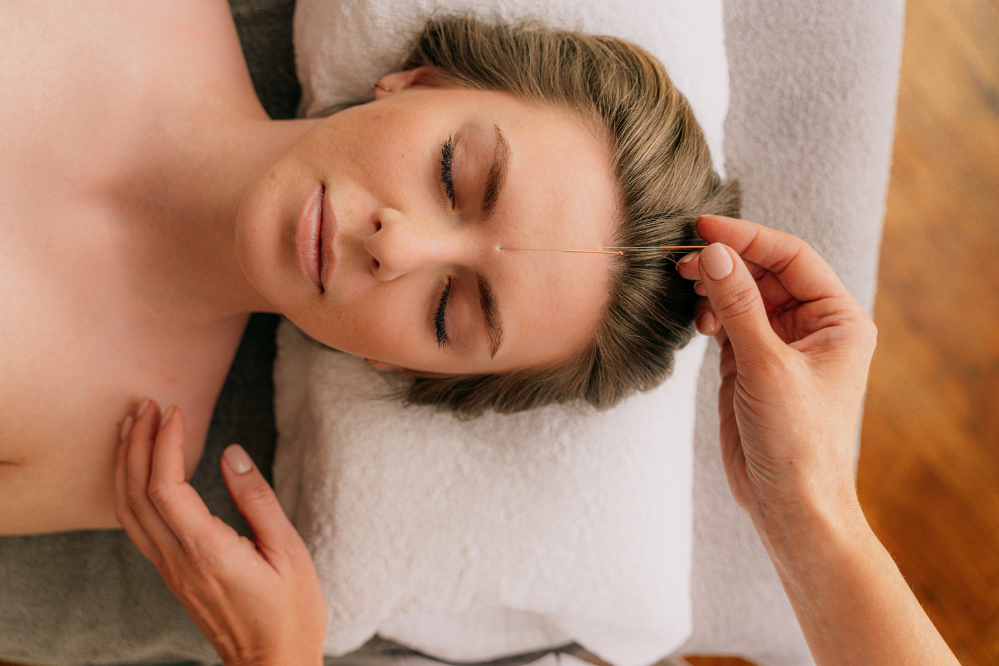For millions living with pain, acupuncture treatments are no longer an exotic curiosity. It’s now a widely accepted treatment among the medical community and pretty popular with patients as well. However, there are still numerous unanswered questions regarding this approach. So, keep reading to find out more about acupuncture and how long does it take for acupuncture to work.
How Long Does It Typically Take for Acupuncture to Work?

The time it takes for acupuncture to start working and give noticeable relief varies from person to person. Many patients begin to feel the beneficial effects after just one or two sessions.
The needles stimulate the body to release endorphins, serotonin-natural painkillers and mood elevators that promote an increased sense of wellbeing. At the same time, acupuncture helps to reduce inflammation in the body, such as stiffness, swelling, and pain.
With that said, to experience the full effects and maximum relief, a course of several sessions is usually recommended, especially for chronic conditions. Acute problems like a recent injury or short-term pain may resolve quickly with just a few treatments. But longer-standing health issues will likely require 5-10 sessions to see significant, lasting improvement.
Factors That Influence How Quickly Acupuncture Works
Here are the key factors that influence how quickly you can see the benefits of acupuncture:
Type of condition being treated
The type and severity of the health issue being treated have a significant impact on how quickly you can expect to see results from acupuncture. For instance, acute conditions, such as muscle strains, minor injuries, or headaches, often respond more rapidly to acupuncture treatments. Patients experiencing these issues may notice relief after just one or two sessions as the body is able to heal more quickly.
On the other hand, chronic problems tend to require more time and consistent treatment. Conditions like long-term pain, digestive disorders, or anxiety often involve more complex underlying issues that can take longer to address. For these cases, more treatments may be necessary to see long-term results.
Individual health and lifestyle
Your overall health status and daily habits can influence the body’s healing response to acupuncture. Factors such as diet, exercise, stress levels, and sleep patterns can either facilitate or hinder the effectiveness of treatment.
If you maintain healthy lifestyles tend to experience quicker and more pronounced results compared to those with poor health habits or multiple health challenges.
Frequency of treatments
Regular acupuncture sessions can significantly accelerate the healing process. For patients dealing with chronic conditions or more complex health issues, it is often recommended to schedule treatments on a weekly or bi-weekly basis to achieve optimal outcomes and facilitate a deeper, more sustained response to therapy.
The principle behind this frequency is that the body responds better to consistent stimulation and support. Receiving acupuncture more regularly enhances your body’s natural ability to heal and may lead to faster and more noticeable improvements in your condition. Over time, patients find that they experience not just short-term relief but long-lasting benefits that improve their overall quality of life.
Experience of the practitioner
The acupuncture practitioner’s skill and expertise can impact the treatment’s efficacy. An experienced practitioner is better equipped to select appropriate points, utilize effective techniques, and tailor the treatment to the patient’s unique needs. They can also adjust the plan as necessary to enhance outcomes and expedite recovery.
Mind-body connection
Acupuncture works better when the patient is open and ready for the treatment. When a person is relaxed and involved, it can help them heal more effectively. On the other hand, feeling stressed, anxious, or resistant may make it harder to see benefits. So, having a calm and positive attitude can lead to faster improvements.
The Acupuncture Process and Timeline for Specific Conditions
The process and timeline of acupuncture treatment vary based on the specific condition. Here’s how many acupuncture appointments it typically takes to feel it’s effects:
– Chronic pain: 4–6 sessions
– Stress and anxiety: 2–3 sessions (long-term benefits may take 4–8)
– Insomnia: 2–4 sessions
– Digestive disorders: 3–6 sessions
– Women’s health issues: 4–8 sessions
– Chronic fatigue: 4–6 sessions
– Post-surgical recovery: 2–4 sessions
– Respiratory conditions like asthma or allergies: 3–5 sessions
– Cravings and withdrawal symptoms: 5–10 sessions
– Migraines or Parkinson’s disease: 6–8 sessions
– Skin conditions: 4–6 sessions
What to Do If Acupuncture Isn’t Working

If you’ve been trying acupuncture treatments for a while but aren’t seeing the desired results, there are several steps you can take. First, have an open and honest conversation with your acupuncturist about your progress and concerns. They may recommend adjusting the frequency or duration of your treatments, or trying different acupuncture points or techniques that may be more effective for your specific condition.
It’s also important to evaluate other factors impacting your healing, such as your
– Diet
– Stress levels
– Sleep habits
– Medications
In some cases, combining acupuncture with other complementary therapies like herbal medicine, massage, or physical therapy may be the way to go.
Tips to Maximize the Effectiveness of Acupuncture
To maximize the benefits of acupuncture treatments, it’s important to follow proper post-session care.
Immediately after each session, be sure to hydrate well by drinking plenty of water. This helps flush out toxins released during treatment.
Rest is also key – avoid planning intense physical activity and allow your body time to relax and recover. Maintaining a healthy, balanced diet between treatments supports the body’s healing processes. Eat plenty of fresh fruits, vegetables, lean proteins, and whole grains while limiting processed foods, caffeine, and alcohol.
In addition, consistency is crucial for seeing acupuncture’s full, long-term positive impacts. Commit to the recommended treatment plan and frequency to give your body the repeated stimulation and support it needs to repair imbalances and optimize functioning. With proper self-care and dedication to the healing process, acupuncture can be a powerful tool for restoring and maintaining vibrant health and well-being.
The Bottom Line
Acupuncture can be a powerful and effective treatment for various conditions, from chronic pain to stress and digestive issues. The time it takes to experience noticeable benefits depends on a range of factors, including the type of condition, your overall health, and the frequency of treatments. While some individuals feel improvements after just a few sessions, others may need more time to see lasting results. Consistency and following a well-rounded treatment plan are key to maximizing acupuncture’s benefits.
If you’re here because you are interested in starting acupuncture but are hesitant to take the first step, we are more than happy to answer any of your questions. And if you want to schedule an appointment at our clinic, you can do so here.
Frequently Asked Questions
Can I feel results after just one acupuncture treatment?
Yes, some people experience immediate relief after one session, but results can vary.
How does acupuncture compare to other forms of treatment in terms of effectiveness and time?
Acupuncture can be highly effective for various conditions, including chronic pain, stress, and certain digestive issues. Compared to other treatments, such as medication or physical therapy, many patients report fewer side effects with acupuncture.
What happens if I don’t feel relief after several sessions?
If there’s no relief, discuss it with your acupuncturist, who can adjust your treatment plan or suggest alternative options.